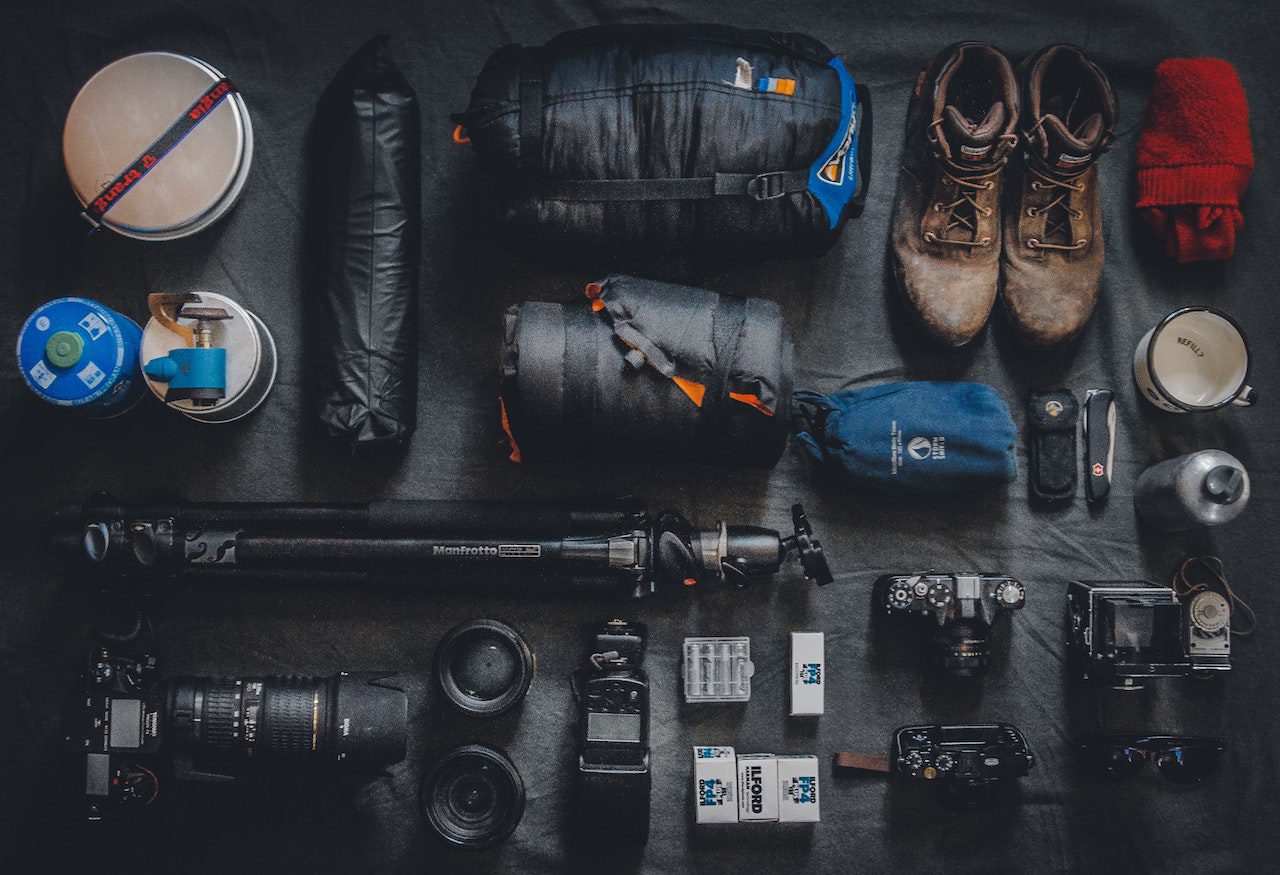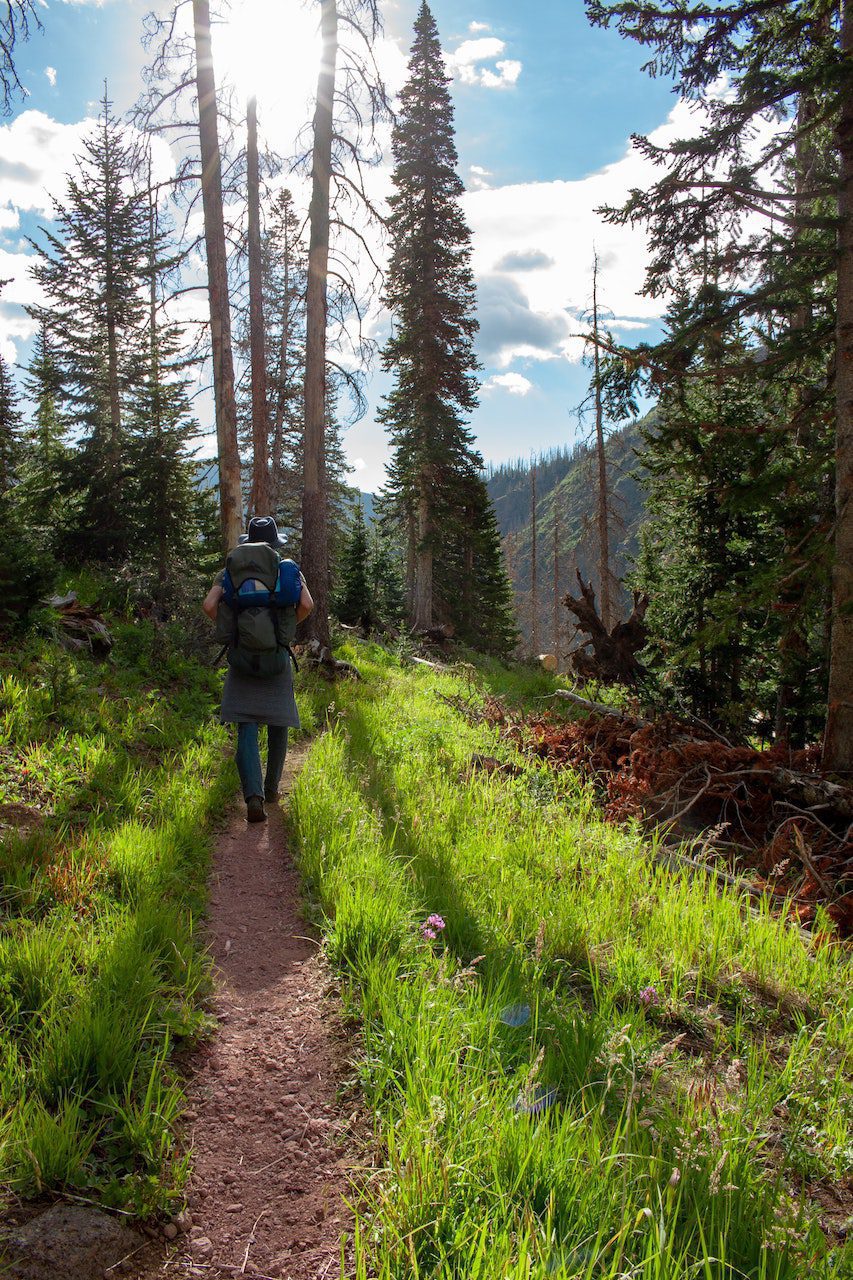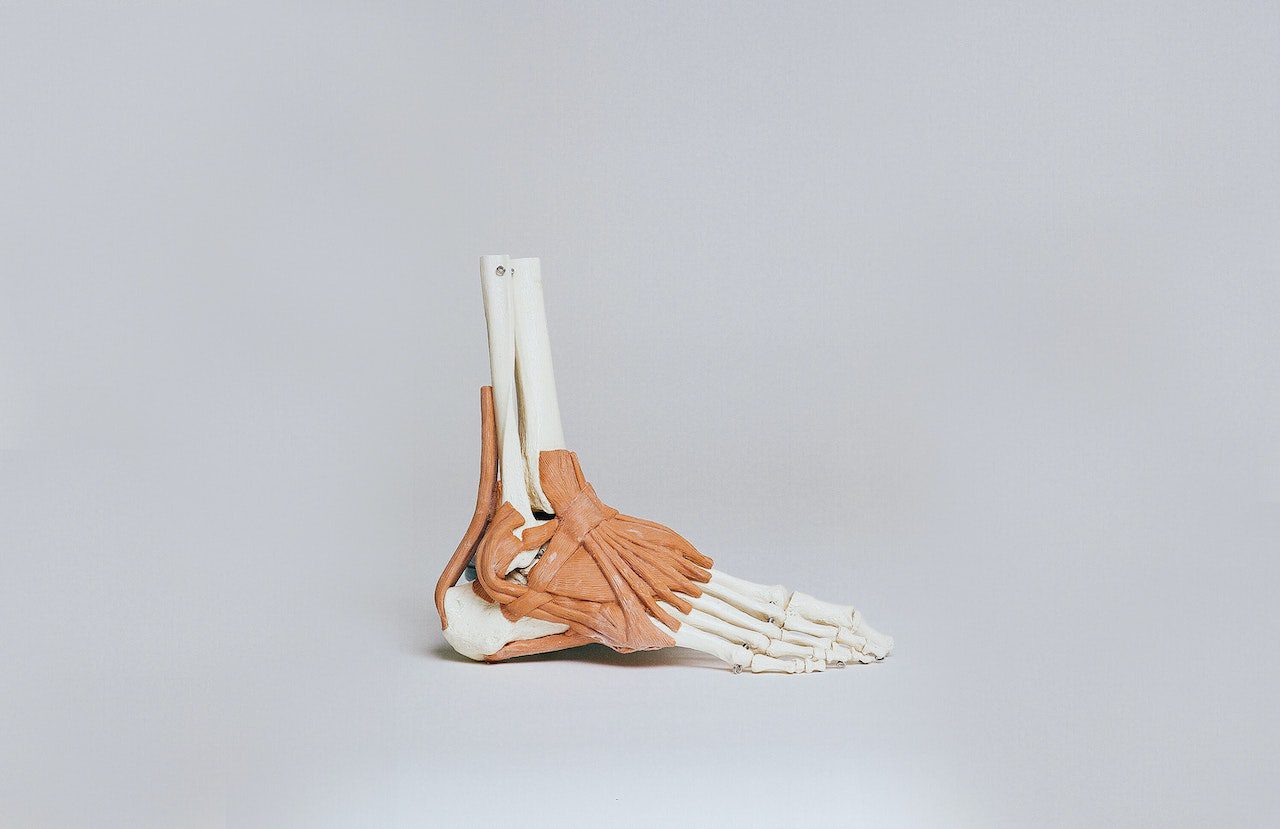
Backpacking Vs Day Hiking. Which Is Better?
There are so many incredible trails in the world it can be hard to choose which one to explore next. However, depending on your experience level and the available time, you might find that some trails are better suited for you than others.
While both day hiking and backpacking require a fair amount of preparation, there are some important distinctions between the two activities. If you’re considering whether backpacking vs day hiking is right for you, read on to learn more about each activity’s pros and cons.
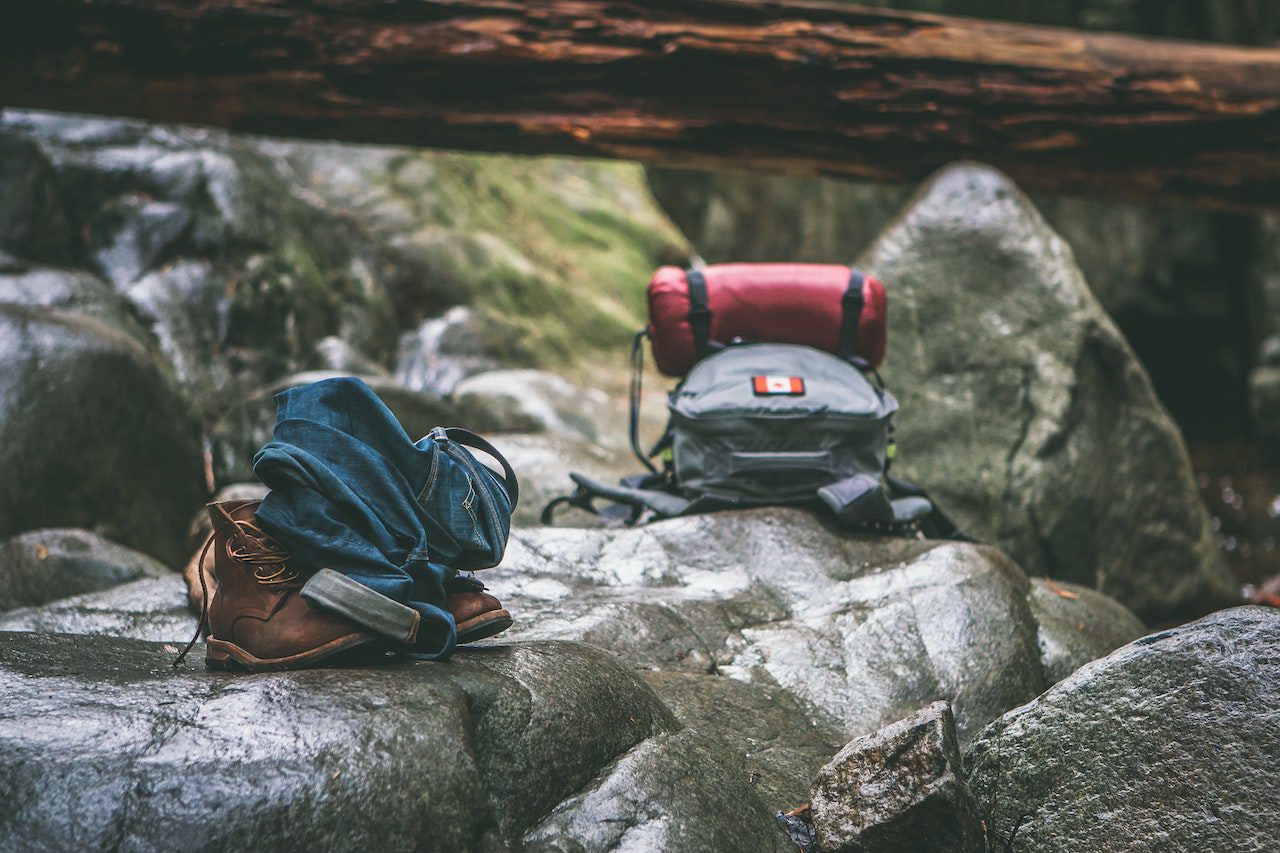
What Is Backpacking?
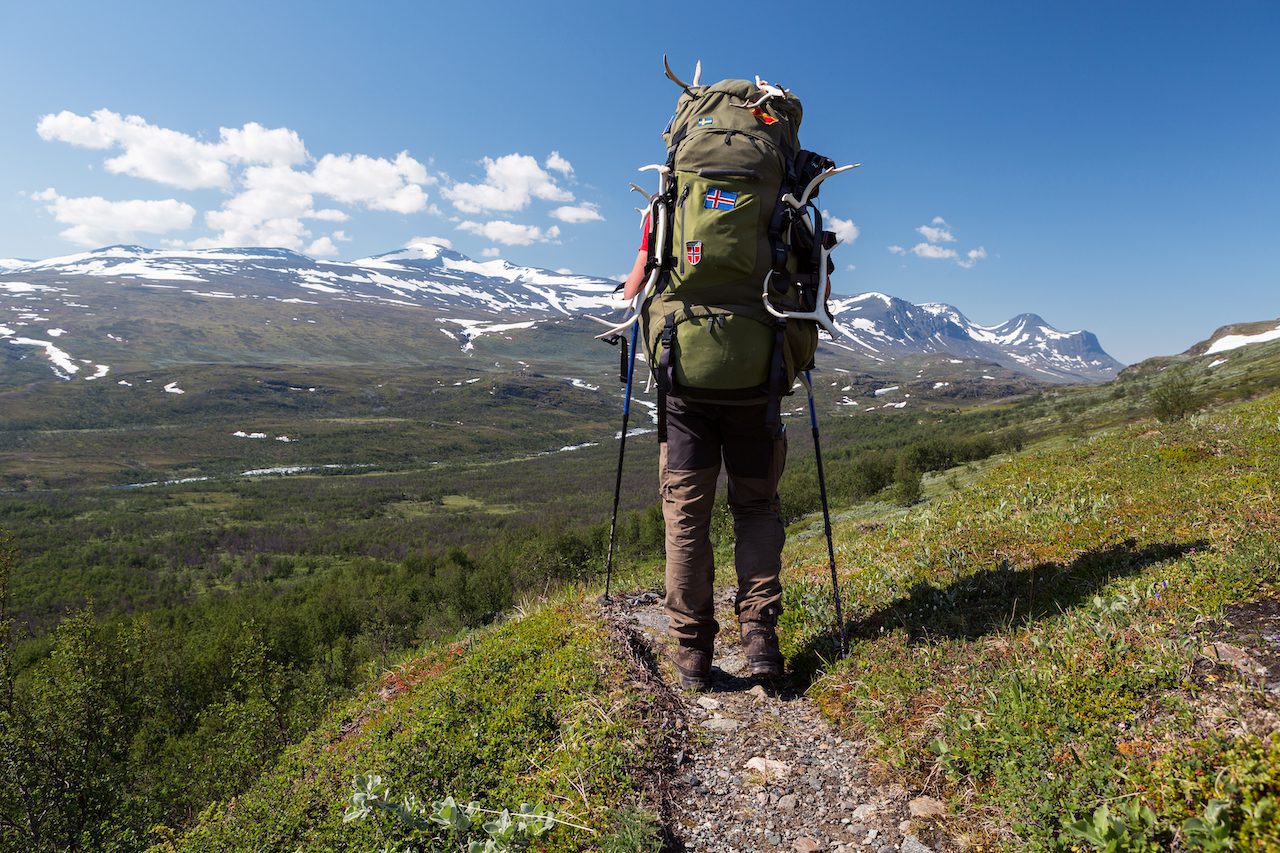
Backpacking is a type of wilderness travel where hikers carry all their gear on their person. Typically a backpacking trip involves a multi-day journey, with hikers camping out in the wilderness along the way. This means that backpacking also requires carrying a backpack with all your gear and provisions needed for the trip.
The term “backpacking” was first used in the 1900s in reference to American hikers who traveled abroad with large rucksacks on their backs. Backpacking has become a popular way to explore nature in its rawest form.
What Is Day Hiking?
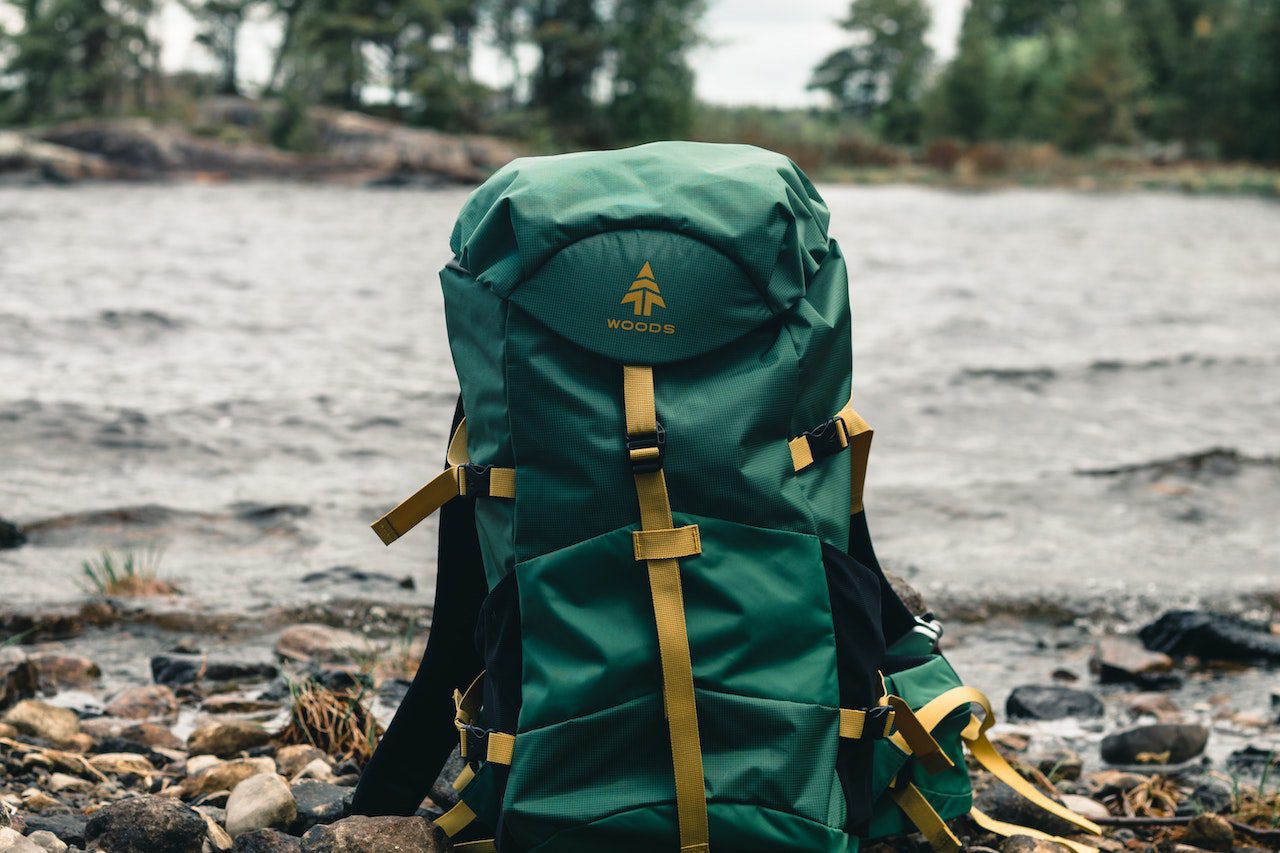
While backpacking usually implies an overnight stay in the wilderness, day hiking usually refers to any hike lasting from a couple of hours to an entire day. Day hikers usually travel shorter distances than backpackers and are not expected to set up a campsite in the wilderness. Typically at the end of a day hike, the hiker will drive back home or head to their front-country campsite.
Another significant difference between day hikers and backpackers is the required gear. Day hikers carry a much lighter load, only bringing the necessary equipment and provisions for the hike, which is less since they hike out the same day and don’t need to bring extra equipment such as a shelter, sleeping bag, etc.
If you’re planning to go on day hikes regularly, you may opt to purchase a daypack to store your gear more compactly and efficiently. Day hikers are more likely to be seen with a daypack than the higher-volume pack many backpackers wear since they don’t need to carry as much gear as discussed.
Benefits Of Backpacking:
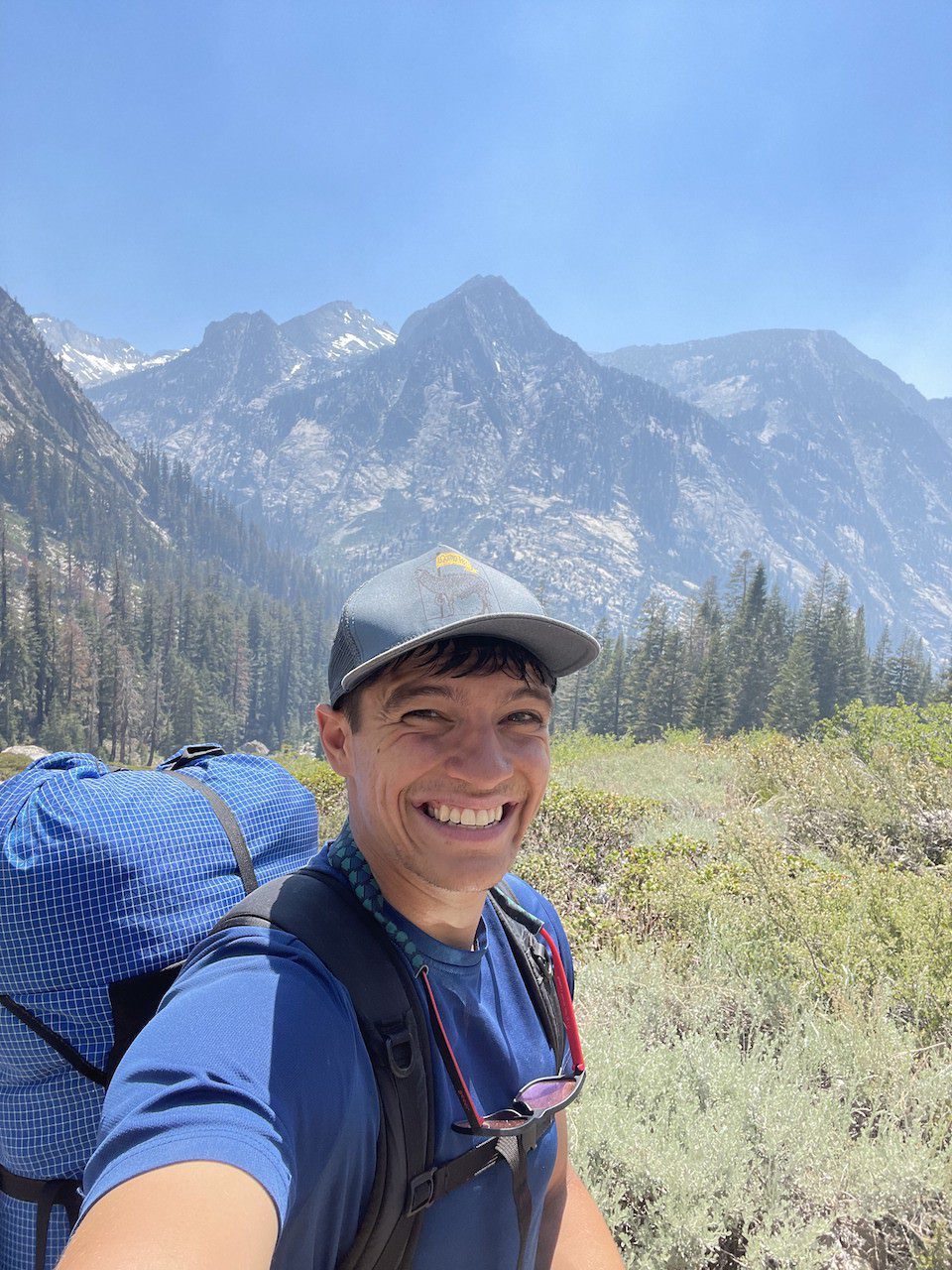
Generally, backpacking trails are less populated and more remote than day hikes. This means that you are more likely to enjoy some solitude away from crowds when you are on a backpacking trip in the remote backcountry. Backpacking is a great way to escape the noise and light pollution of major cities and connect to nature in a way that day hiking may not allow.
Since a backpacking trip typically lasts several days, you can cover much more ground during a multi-day backpacking trip than you would in a single day hike.
Downsides Of Backpacking
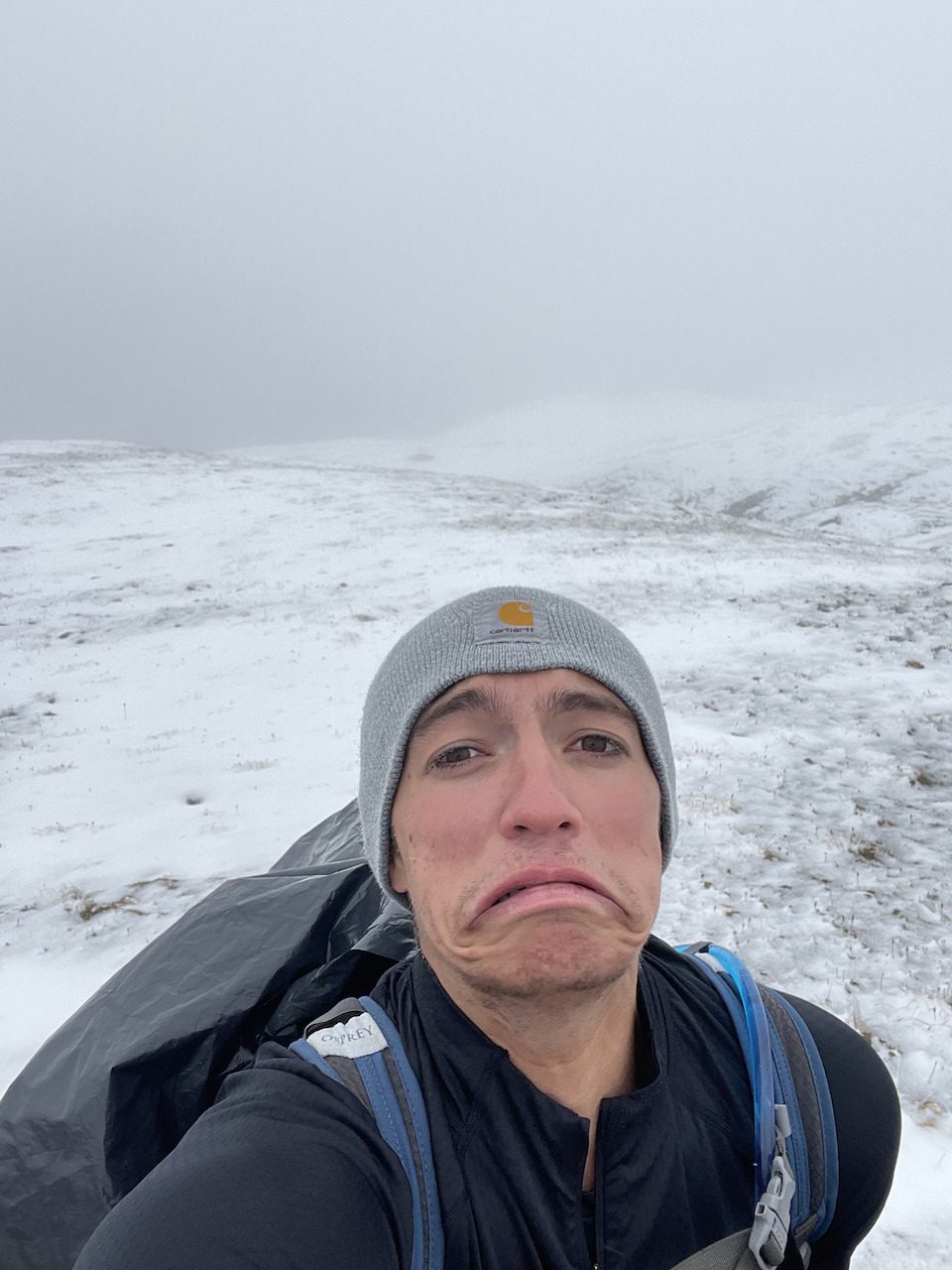
While the benefits of backpacking certainly outweigh the negatives, there are a few things to consider before you decide to go on your first hiking trip.
Firstly, backpacking requires that you carry a heavy load, sometimes upwards of 40 pounds. This can take some getting used to and can be a significant challenge for inexperienced or out-of-shape hikers. To avoid injury and discomfort, you should begin by carrying a light load on day hikes and slowly build yourself up to backpacking fitness.
Also, backpacking requires having the proper equipment. Unlike a day hike, where you can hike with minimal gear, a backpacking trip requires you to be able to live on your own in the wilderness for several days; that means food, water, shelter, the right clothes, and much more. Without this, the experience can be very uncomfortable, if not downright dangerous.
Finally, backpacking requires basic outdoor skills such as setting up a shelter, navigation using a map & compass, and knowing how to filter your water, to name a few. Heading out on a backpacking trip without being proficient in these skills is unwise and dangerous.
Benefits Of Day Hiking
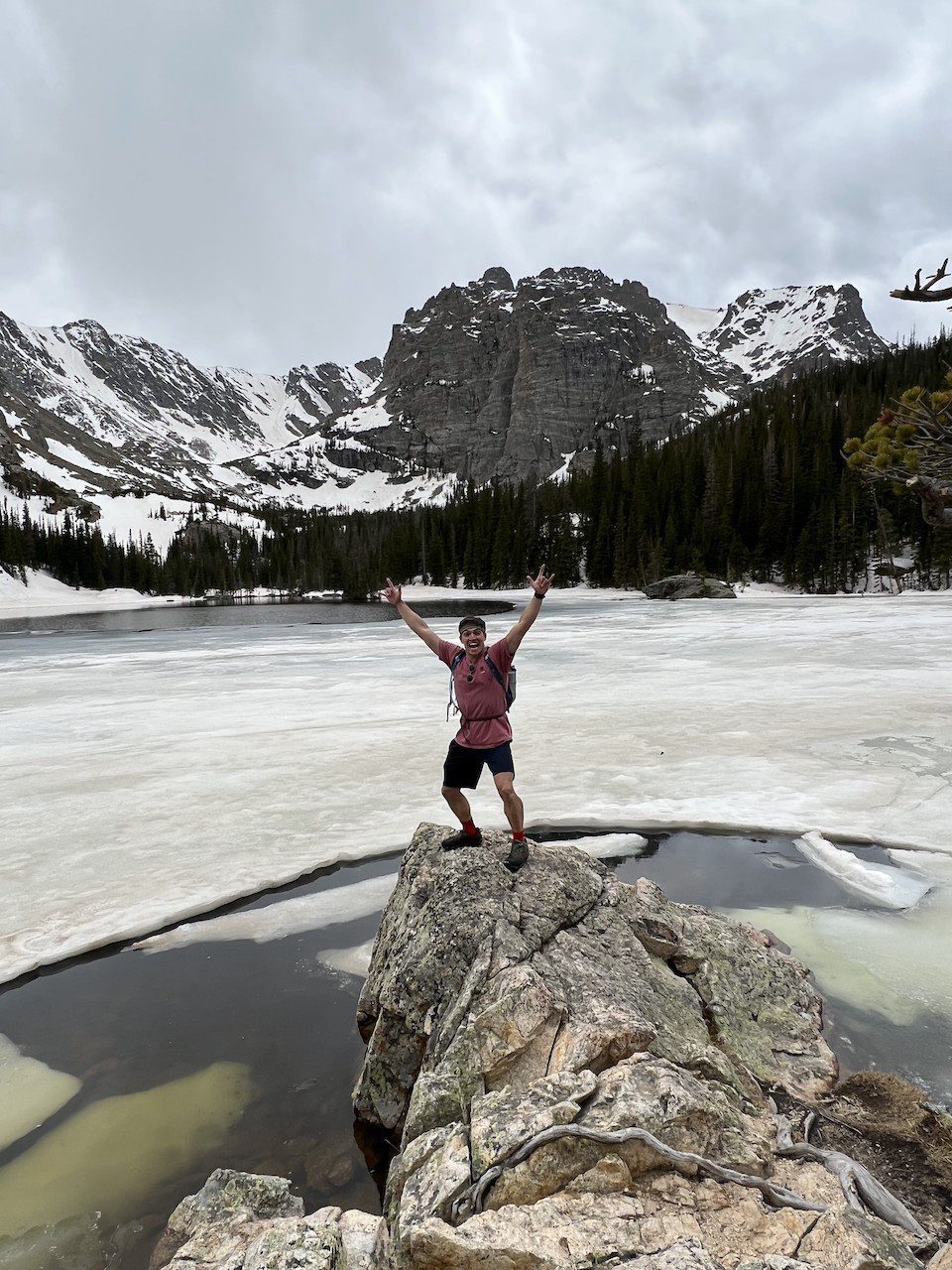
While you may not get the isolation that typically comes with a backpacking trip, there are still many benefits to day hiking.
One major advantage of day hiking is that it is a great way to get out and enjoy the great outdoors while on a time crunch. Only have an hour or two after work and want to get outside? Day hiking is a great way to do that without having to commit multiple days to being in the wilderness.
Another perk of day hiking is that you do not need as much gear as you would if going on a backpacking trip. However, you should be aware that some pieces of equipment are a must, even if you are just going on a short day hike. You can learn more about the day hiking essentials with my “Day Hike Gear Guide.”.
Overall, day hiking is a great way to ease into the activity before graduating to backpacking. Day hikes are a great way to hone your outdoor skills in a more controlled setting, which can then be applied to longer overnight trips.
Downsides To Dayhiking
While day hiking offers many benefits, it also has some downsides. Perhaps the most annoying downside of day hiking is that because they are often more easily accessible than some backpacking routes, you may find yourself hiking on crowded trails. While this isn’t the end of the world, it can take away from being fully immersed in nature which comes with many backpacking trips.
Soooo Which One Is For You?
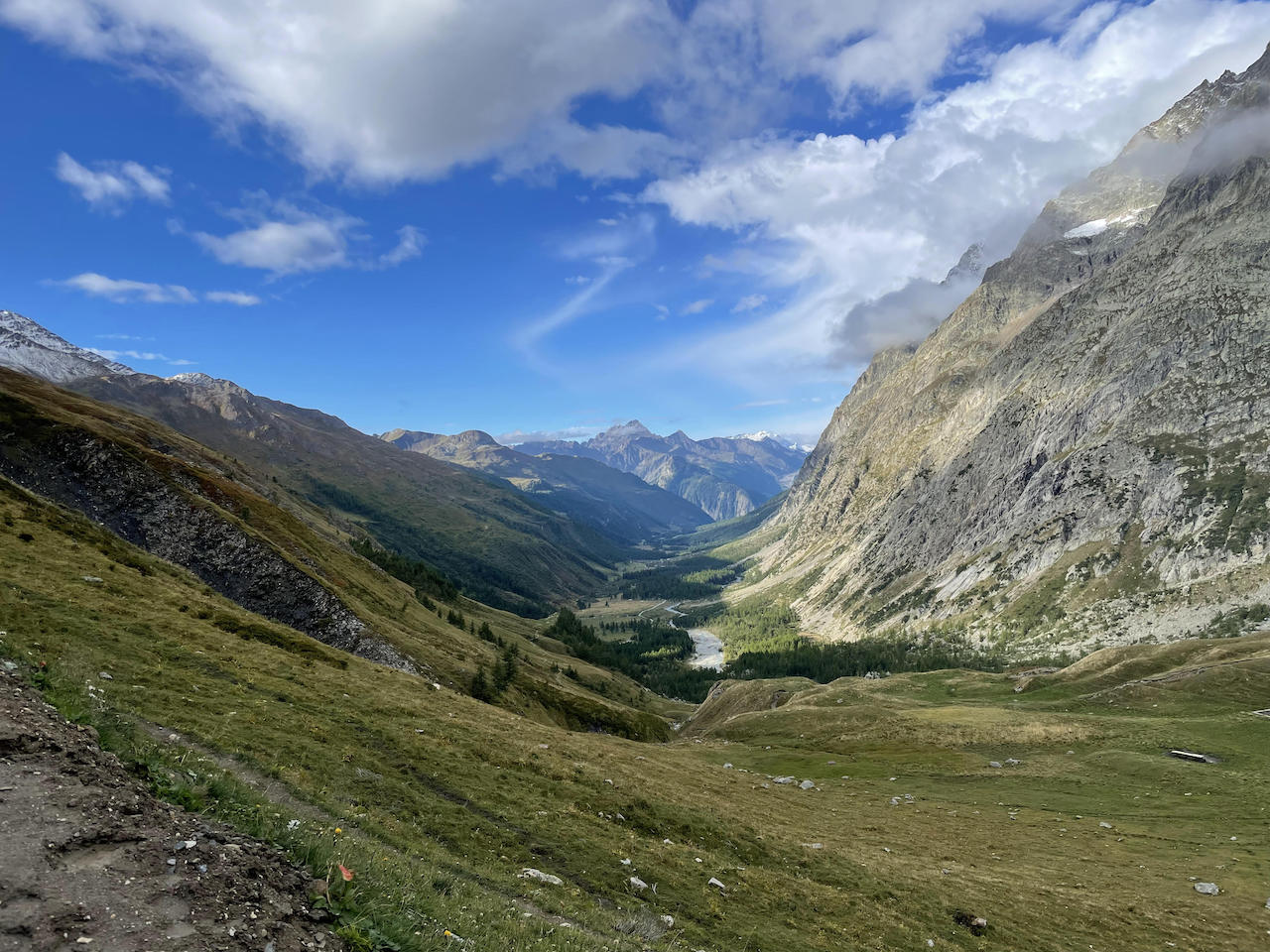
Ultimately, backpacking and day hiking are great ways to experience the joy of hiking. Before deciding which to go on, make sure you and your group are prepared for each activity’s challenges. Begin by choosing an appropriate trail for your experience level and ensure you have the necessary gear. For some gear recommendations, check out my “Backpacking Gear Guide” or “Day Hike Gear Guide.”
As a general rule of thumb, if you are new to hiking, I would recommend sticking with day hikes when starting out and maybe take some wilderness classes before venturing out on your first backpacking trip. If you are completely new to backpacking and want to learn more, check out my “How To Start Backpacking” post.
Suppose you have plenty of hiking experience and are still debating whether you want to do a trip consisting of many-day hikes vs. a long multi-day backpacking trip. I would research what exactly you want to see in the park. If what you want to see is more remote and requires multiple nights in the backcountry, then you should backpack. But if not, I would stick with day hiking so you can cover more mileage easier and be a bit more comfortable at camp.

